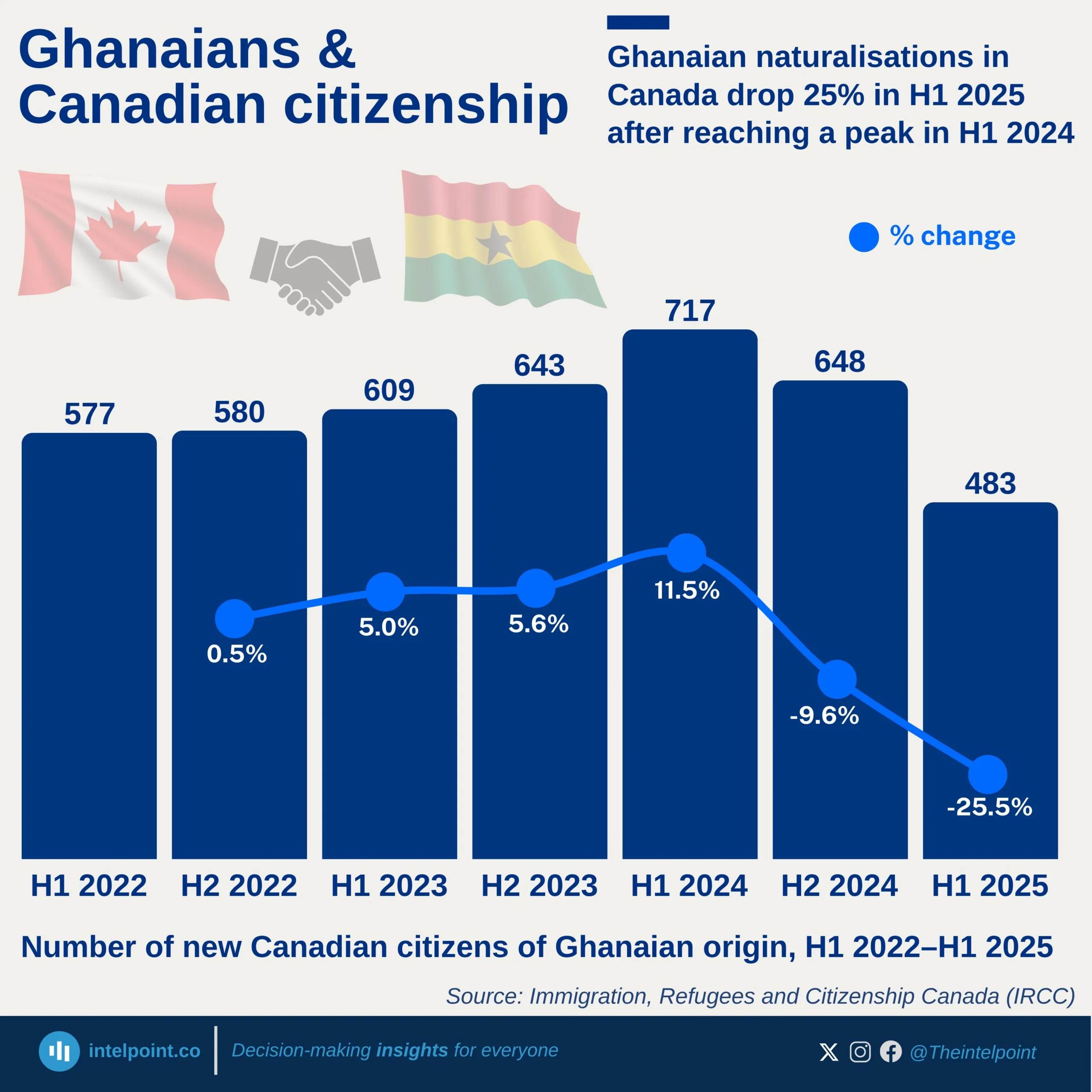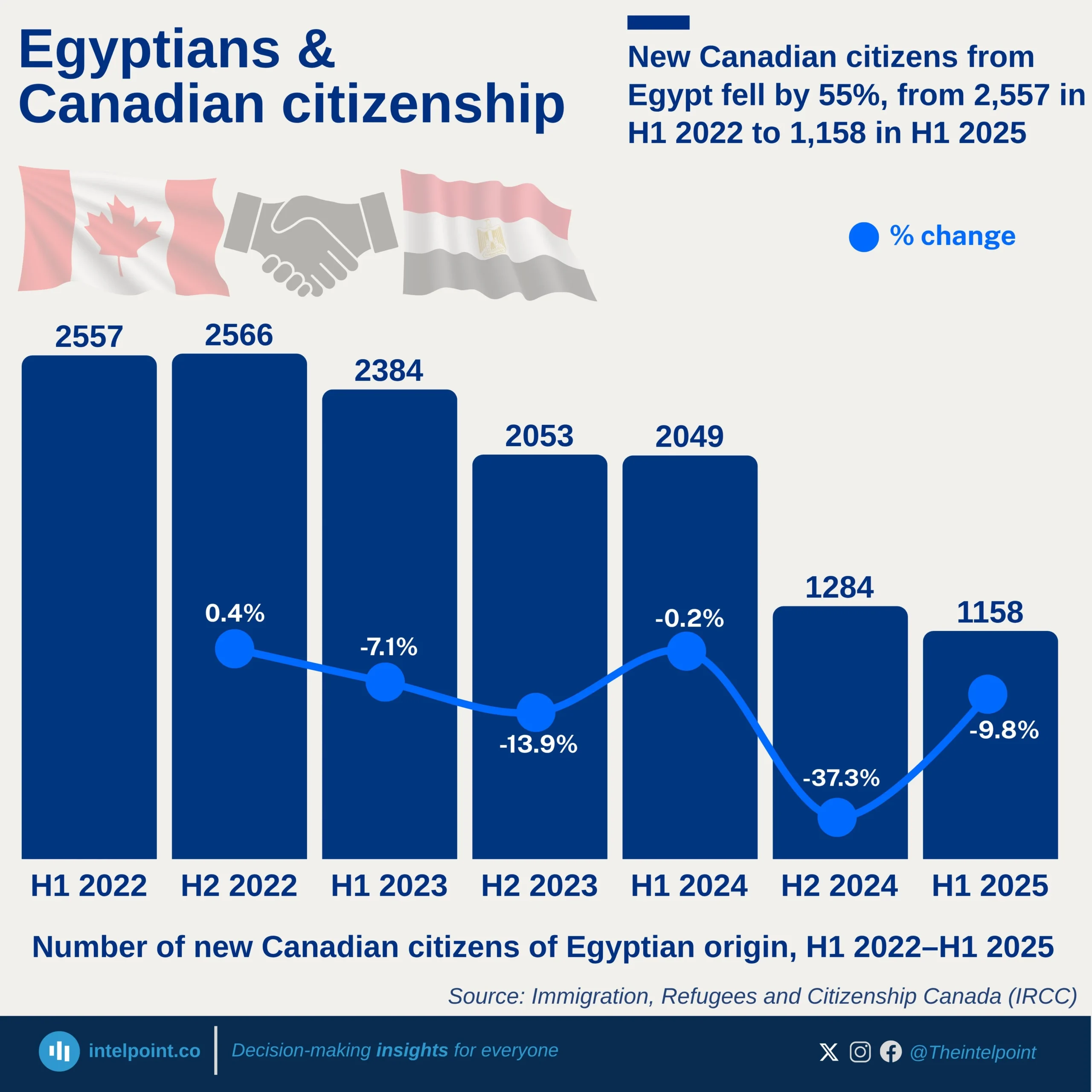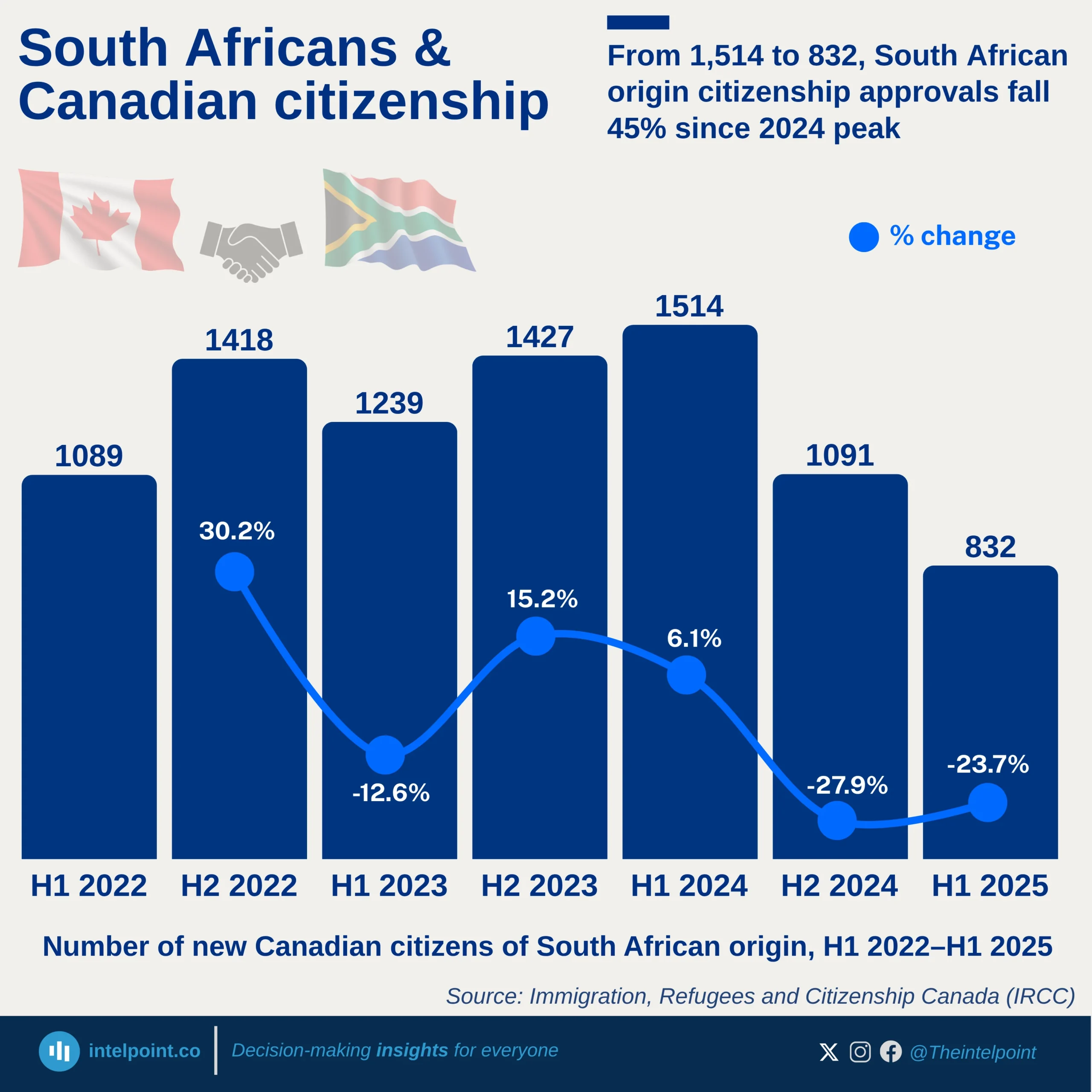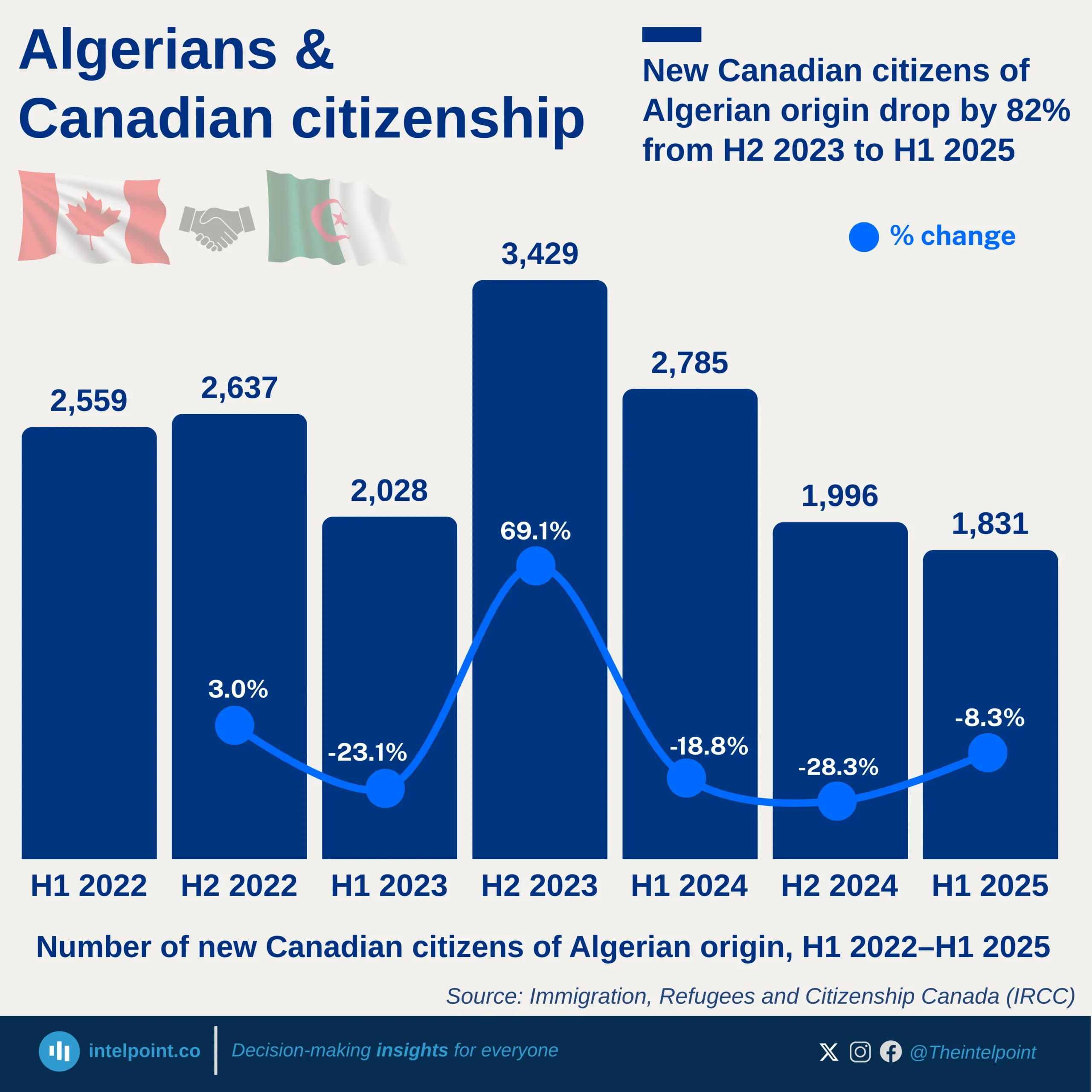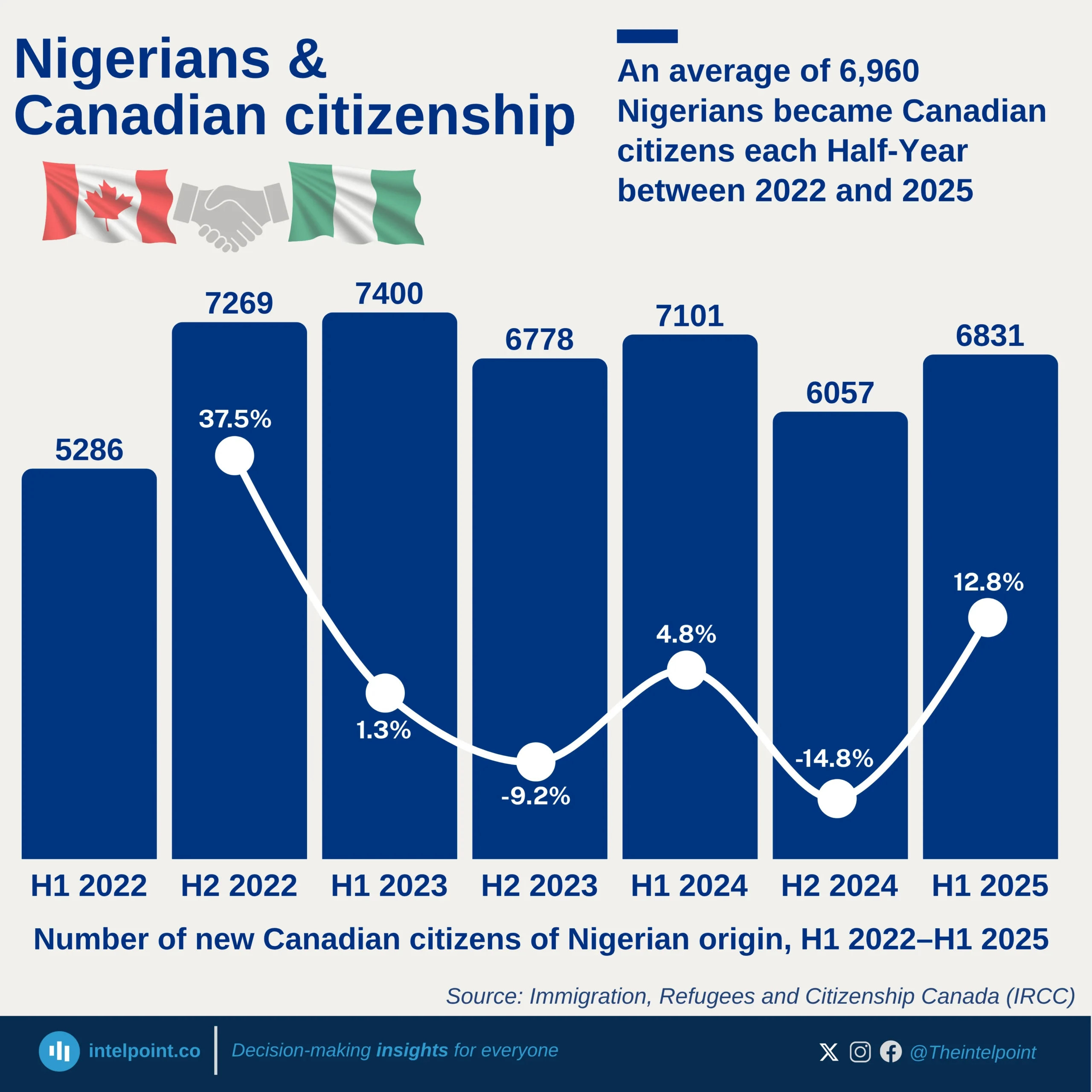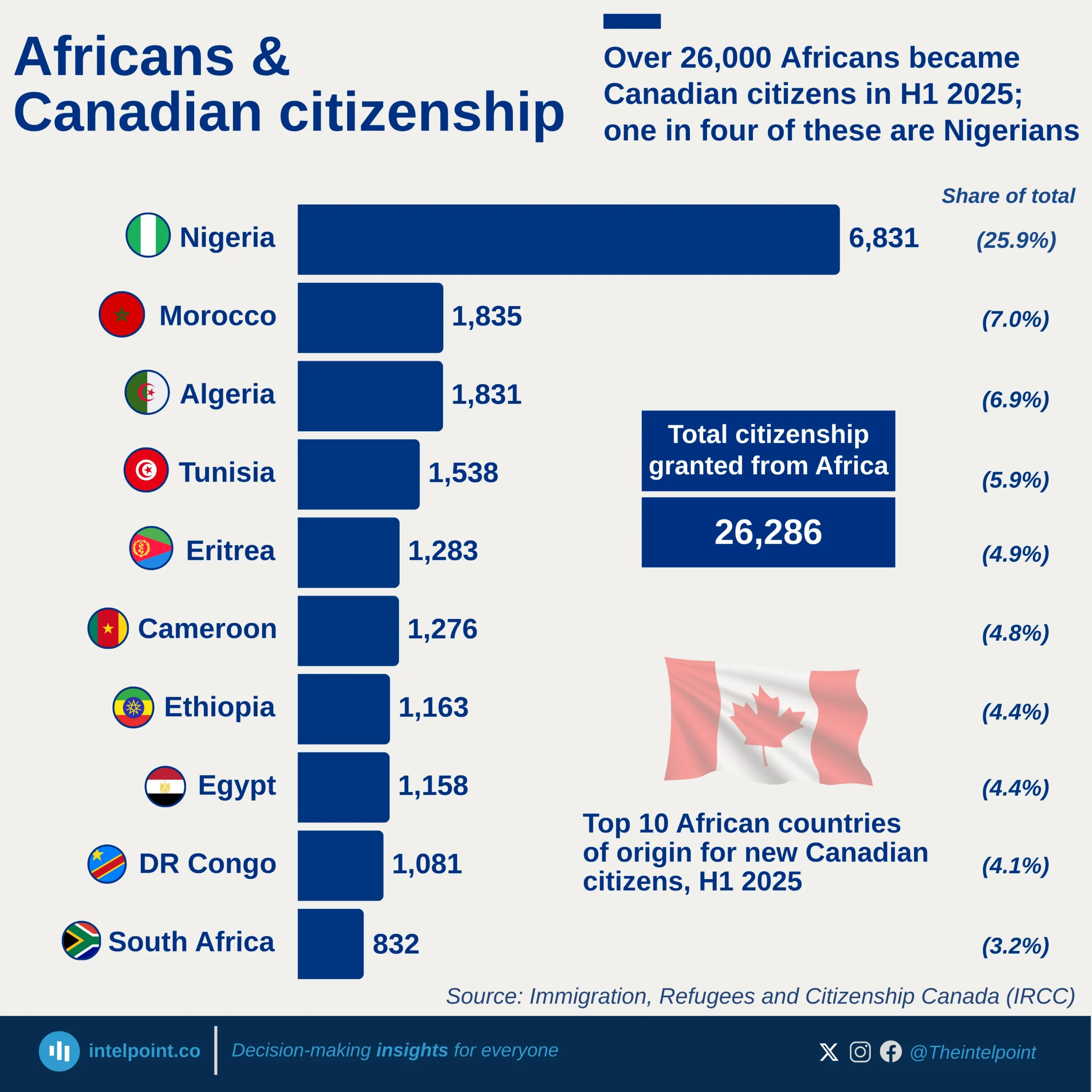Comoros leads with a striking 62.8% rejection rate, the highest not just among African consulates, but also the global consulate countries
Guinea-Bissau, Senegal, and Nigeria follow with rejection shares between 45% and 47%.
Despite having one of the highest total visa rejections globally, Algeria does not appear in this chart, as its rejection share is comparatively lower.
Countries with smaller applicant pools tend to have higher rejection rates, shedding light on access disparities and approval scrutiny in consulate processes.
This chart focuses on African consulates processing Schengen visa applications in 2024, highlighting the top 10 countries by visa rejection share. While Algeria had the highest total denials globally, nations like Comoros (62.8%), Guinea-Bissau (47%), and Senegal (46.8%) recorded much higher rejection rates relative to their total applicants.
This metric helps uncover a different layer of visa access challenges, showing not just how many were denied, but how often applicants from these countries face rejection, regardless of volume.
